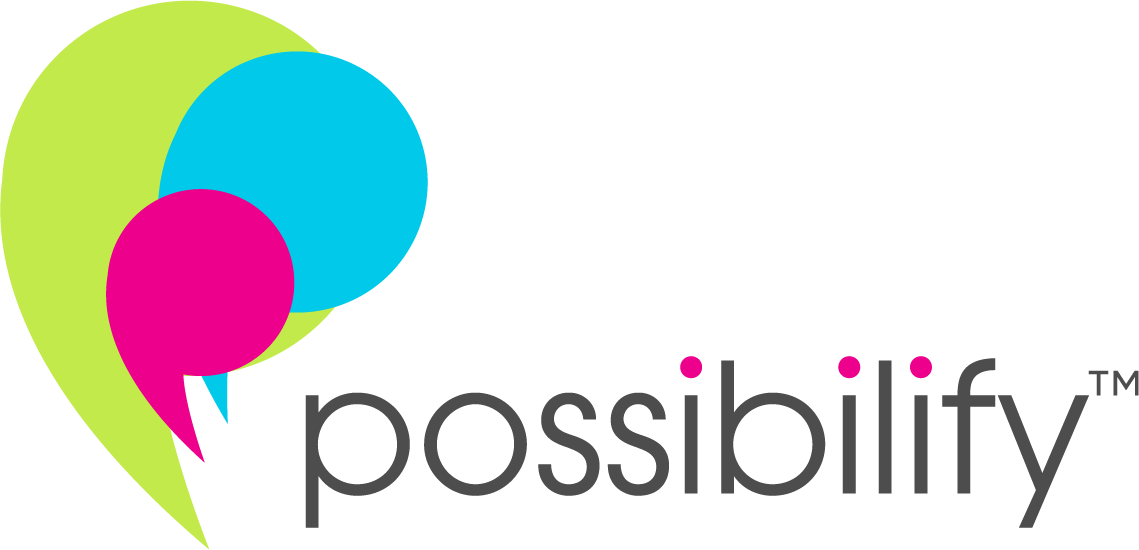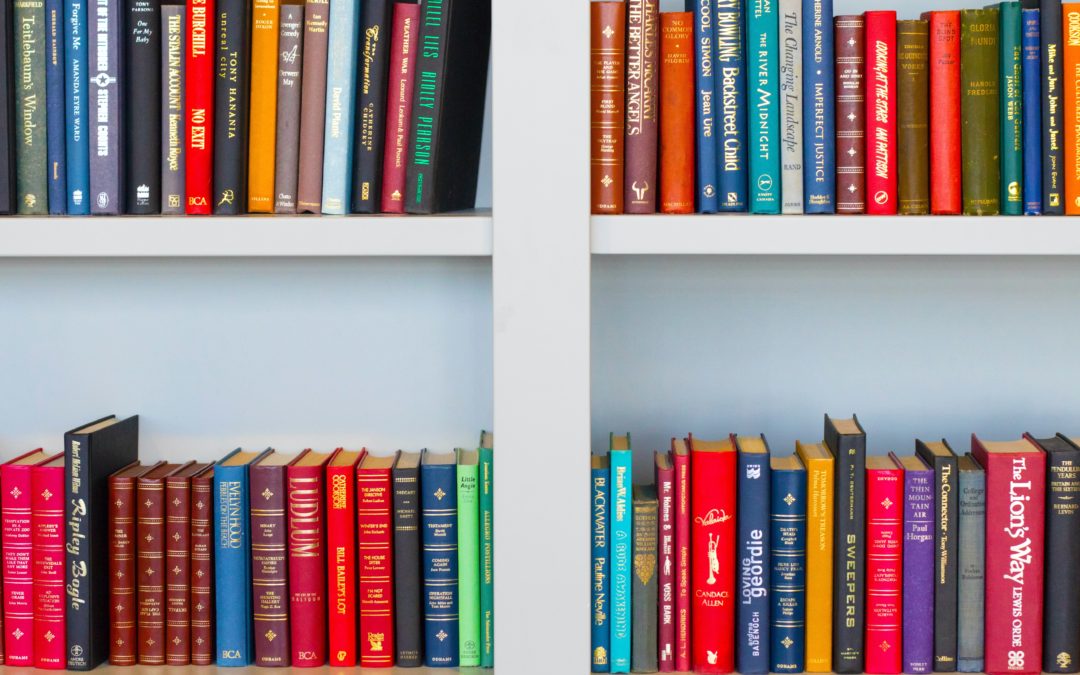- Books are Our Friends - September 17, 2020
- Eat What’s On Your Plate (But Be Careful What You Put On It) - July 16, 2020
“Books are more than doctors, of course. Some novels are loving, lifelong companions; some give you a clip around the ear; others are friends who wrap you in warm towels when you’ve got those autumn blues. And some, well, some are pink candy floss that tingles in your brain for three seconds and leaves a blissful void. Like a short, torrid love affair.”
Nina George, The Little Paris Bookshop
My father always used to say, “We have two rules in this house: 1) Books are our friends; and 2) Eat up what’s put in front of you!”
He said this as though it were a beacon of good news. Only two rules! There were many more rules but I often reflect on how these two particular rules influenced my life. In this article, I wanted to share how Rule #1: Books are Our Friends has continued to influence me throughout my life. (Check out my previous article on Rule #2: Eat up what’s put in front of you.)
Respect Books
From a young age, my two brothers and I were taught to respect books. Never fold a page or mark a phrase. Don’t leave a book open and turned down or you’ll ruin the spine. Use a bookmark. Don’t toss them out or leave them in a heap somewhere. Build a bookshelf. Create a home for your friends.
Our relationship with books, however, goes beyond the physical. Books are friends who comfort us, challenge us, educate us. They open up our eyes to the realities of life. They make us laugh, cry and care about the people and the world in which we live. A good book is one that can take us through many emotions and create a world into which we can escape. Or it can illuminate the harsh reality of life.
If you have ever read a great book, I bet you understand what I am saying. Maybe a novel has gutted you. Perhaps there are books you connected with, that resonated with you, that transformed you, that shaped who you are. These books are your friends. Friends whom you don’t want to let go. Friends you want to have near so you can call on them when you need that feeling again.
So let me introduce you to a few of my friends
When I played on the national team a teammate of mine introduced me to the books of John Irving. I think I have read all of his books. His book The Cider House Rules sticks in my mind as the characters grapple with some moral choices that aren’t so black and white. As a young man, it broadened my understanding of the big bad world and deepened my compassion.
I tried to read William Faulkner’s The Sound and the Fury, which is touted as Faulkner’s masterpiece and one of the greatest novels of the twentieth century. After 120 pages I still didn’t know what the book was about so I quit reading it. And quitting is a hard thing for me! I guess that’s why some friendships work out and some just don’t.
One of my favourite stories is John Steinbeck’s Of Mice and Men. I’ve seen the movies and even went to the Broadway play starring James Franco. Every time I experience the story I break down in tears when George does what he feels is the most compassionate thing but also the most unimaginable thing to his friend Lenny. (I won’t say any more in case you haven’t read it.)
More recently I’ve read The Book of Negroes by Lawrence Hill. This is an EPIC tale. It is a story of a Black woman, who was enslaved and endured such grief and tragedy at the hands of her owners. It was gripping and heartbreaking. It opened my eyes to a life of tragedy that was unfathomable. Fortunately, Lawrence Hill was in my neighbourhood to speak about his book and new mini-series and I was able to ask him about the differences between the novel and the series. What struck me as one of the most significant differences was the act of forgiveness that was portrayed in the series and not the book. For all the horrors she experienced, forgiveness was a monumental act.
Indian Horse by Richard Wagamese follows a boy, forced into an Indian Residential School, who is saved by hockey. It documents the horrors that Indigenous children in Canada endured when they were forcibly removed from their families and sent to these schools. At the end of the book, there is an ah-ha moment, which crushed my heart.
All My Puny Sorrows by Miriam Toews is a fictional story about a protagonist who is dealing with overwhelming sorrow and suicide. I found most of the book just depressing but then it rallied to become a story of astounding love and hope. It opened my eyes to the struggles of mental illness and the realities of dealing with it both as the person suffering from it and for those who are close friends and family. It covers a difficult subject and is superbly written. And despite the theme of sadness, it is sprinkled with humour and lighthearted moments that help balance it out.
How I learned to love books
I was not a big reader growing up. I usually avoided reading and would rather be outside playing ball. But my father would read to my mom and two brothers and me at mealtime. It was in these moments we got to hear the stories of the Bible (during breakfast), about the adventures of Beau Geste, Tom Sawyer and Huckleberry Finn, Oliver Twist, Anne of Green Gables, the Chronicles of Narnia and listen to some classic poems my father liked. Custard the Dragon was passed on to my children and became a family favourite as we acted it out.
Looking back, there were some pretty intense stories that were told. Many involved death. There was the Charge of the Light Brigade, Gunga Din, The Tell-tale Heart, The Monkey’s Paw, the ballad of John Henry.
My father would use different voices for different characters and really enjoyed delivering an entertaining performance. I came to appreciate poetry and fiction and my father’s ability to engage his audience! Not only did I listen to him at mealtimes but also every Sunday from the pulpit at church. I was always impressed at his ability to capture the hearts and minds of the congregation. Few fell asleep during my father’s sermons.
This habit of reading, although I did not pick it back up in earnest until later in my life, is a habit I continue. As Aristotle said, “we are what we repeatedly do. Therefore, excellence is not an act but a habit.” In Steven Covey’s popular self-help book, 7 Habits of Highly Effective People, Habit 7 is identified as “Sharpening the Saw”. He states in order to be effective we must renew ourselves physically, spiritually, mentally and socially. Part of renewing ourselves mentally and spiritually involves immersing ourselves in great literature. This habit appears as a common theme in self-help books.
Tips to get started reading more books
If you are not accustomed to reading for pleasure, here are some tips to get you started:
- Ask friends for recommendations. If you follow these recommendations, you will likely read (or try to read) some amazing books and you may also find that some are not to your taste.
- Talk with bookstore employees when you do find a book that you like. They can make recommendations based on similar ones. Readers love talking about books and authors!
- Join a book club. I have found being part of a book club is a great idea. Not only does it encourage me with a deadline to finish a book but it exposes me to a bunch of books I would have not normally chosen for myself. I read the novel the Little Paris Bookshop because of a book club. Diversity of reading material is also important. Reading materials out of your comfort zone can challenge you in a good way. Discussing novels at a bookclub is an interesting experience because you are exposed to different perspectives. It is really cool to hear what resonates with some and is totally missed by others.
On Books and Sacredness
When I put these two rules (Books are our friends and Eat up what’s put in front of you) together, I realized they have something in common: there is a sacredness to them both. Although my father preached for almost 50 years, he did not consider himself overly religious. Outside church, one of the only things my father held sacred was dinnertime. Not only was it a time to enjoy good food together but a time to connect as a family. Connecting habits with food can be very powerful. Giving thanks for our food promoted gratitude. Reading after meals was a regular thing for us. When you do something three times a day for your whole life, it tends to sink in. Books were elevated to the level of friends. And like the best kind of friendships, they were sacred too.
And so, as a family, we were experiencing together what relationships looked like. We gave thanks for our food, shared the day’s events, and listened to the experiences of people of another time and place. It is these relationships – with my family and with the authors and characters in the books we read together – which have helped shape my life. As a child, I accepted reading as a regular part of our mealtime routine. As an adult, I have come to realize the value and importance of it.
So be kind to your books. Treat them with love and respect, and read them! Have a healthy appetite. Read about love and loss and grief and joy and sadness. Read about the horrors of humanity and the triumphs of the human spirit. Stretch yourself. Read things that make you weep and smile and dream and imagine and change. Read fiction and nonfiction and poetry. Branch out. Read old dusty out of print books and brand new bestsellers and everything in between. Read, read again and again and then read some more…because books are most definitely our friends.
We would love to hear your thoughts in the comments section below.
And if you liked this article, check out:
Photo by Nick Fewings on Unsplash


Recent Comments